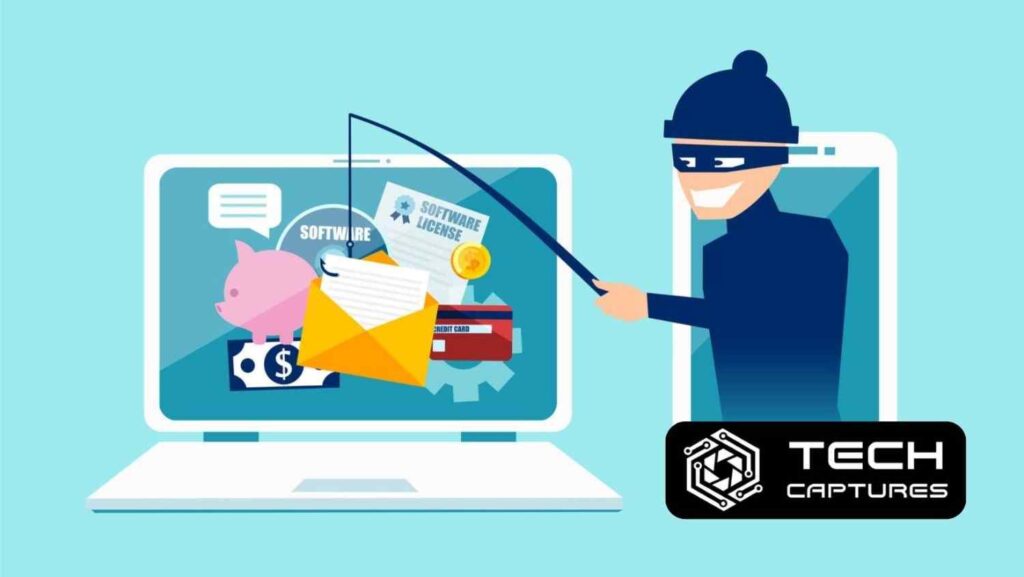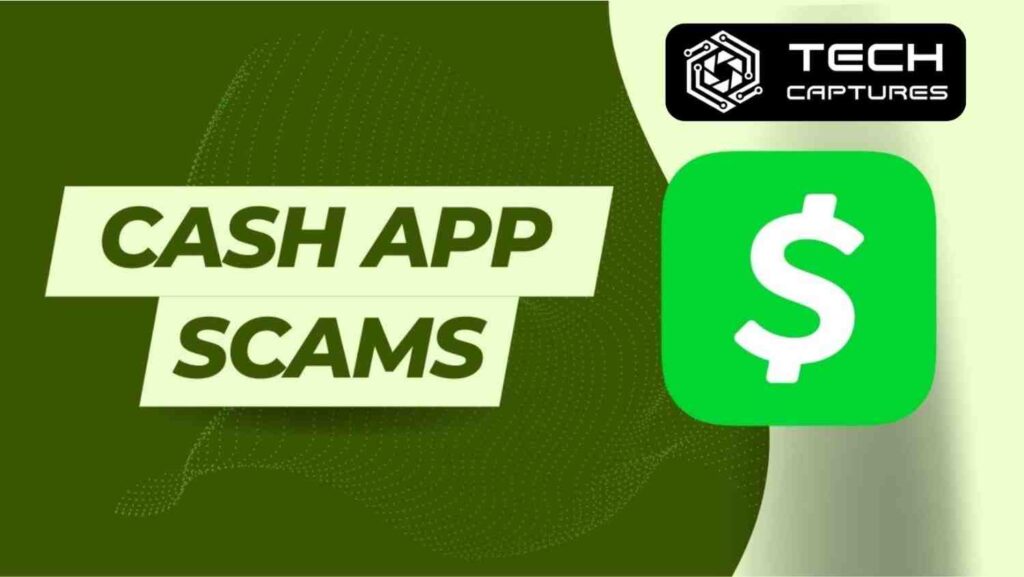In an age where digital transactions are as common as morning coffee, it’s crucial to be aware of the potential pitfalls that come with the convenience of mobile payment apps. One term that has been echoing through the digital corridors is “Cash App Scams.” In this guide, we’ll dissect the nuances, pitfalls, and preventive measures surrounding this concerning issue.
Table of Contents
Understanding the Landscape of Cash App Scams
To comprehend the gravity of Cash App scams, it’s essential to delve into the various tactics employed by cybercriminals. These scams often manifest in the form of deceptive schemes, phishing attempts, or fraudulent transactions. As we navigate through the landscape of these scams, it becomes evident that awareness is the first line of defense for users.
Common Tactics Employed in Cash App Scams
Phishing Expeditions: The Lure of Deceptive Links
One prevalent tactic involves phishing expeditions, where scammers use deceptive links to trick users into revealing sensitive information. These links often masquerade as official Cash App notifications or promotions, enticing users to click without suspicion.
Protect Yourself: Always scrutinize the sender’s details and refrain from clicking on suspicious links. Legitimate communications from Cash App will come from official channels.
The Impersonation Game: Fake Customer Support
Another cunning strategy involves scammers posing as Cash App customer support representatives. They reach out to users, claim issues with their accounts, and request sensitive information. Falling for this can lead to unauthorized access and financial loss.
Stay Vigilant: Cash App will never proactively reach out for personal information. Only communicate through the official app channels.
The Double-Edged Sword: Fake Cash Flips
A seemingly lucrative yet perilous scam is the “cash flip” proposition, where scammers promise to multiply your money through a transaction. Users, enticed by the prospect of quick gains, often end up losing their initial funds without any returns.
Exercise Caution: If it sounds too good to be true, it probably is. Avoid engaging in transactions that promise unrealistic returns.
Recognizing Red Flags: How to Spot Cash App Scams

Educating oneself about the red flags associated with Cash App scams is paramount in fostering a secure digital environment. Let’s explore the indicators that should trigger caution.
Unsolicited Communications: Beware of Unexpected Messages
Legitimate organizations, including Cash App, will not randomly message users for personal information or urgent actions. Any unsolicited communication should raise suspicion.
Stay Skeptical: Verify the legitimacy of messages by cross-referencing with official communication channels.
Urgency and Pressure: A Telltale Sign of Scams
Scammers often create a sense of urgency, pressuring users to act quickly without due diligence. Whether it’s a supposed account issue or a time-limited offer, be wary of coercive tactics.
Take Your Time: Legitimate concerns allow for careful consideration. Don’t succumb to pressure; take the time to validate the situation.
Requests for Personal Information: A Red Flag Alert
Cash App will never ask for personal or financial information through unsolicited messages. Any request for passwords, PINs, or account details is a clear indicator of a scam attempt.
Guard Your Information: Keep your personal and financial details confidential. Legitimate services don’t ask for sensitive information outside secure channels.
Guarding Your Finances: Precautionary Measures Against Cash App Scams
Having explored the intricate web of Cash App scams, it’s time to equip ourselves with the necessary tools to fortify against potential threats. Implementing these preventive measures can significantly reduce the risk of falling victim to scams and enhance your overall digital security.
1. Secure Your Login Credentials: The Gatekeepers of Your Account
The first line of defense against Cash App scams lies in securing your login credentials. Utilize strong, unique passwords and enable two-factor authentication (2FA) to add an extra layer of protection.
Pro Tip: Regularly update your password and keep it private from everyone. 2FA acts as a formidable shield against unauthorized access.
2. Stay Informed: Knowledge as a Shield
Awareness is your greatest ally in the fight against scams. Stay informed about the latest scam tactics, phishing schemes, and common red flags. Cash App regularly updates its security guidelines, providing users with valuable insights.
Stay Updated: Regularly check for updates from Cash App regarding security measures and be aware of evolving scam tactics.
3. Verify, Verify, Verify: The Mantra of Secure Transactions
Before engaging in any transaction, verify the legitimacy of the recipient. Check and double-check the provided details to ensure you’re sending money to the right person. Scammers often manipulate transaction details to deceive users.
Double-Check Details: Take an extra moment to verify the recipient’s information, especially for larger transactions.
4. Educate Your Circle: A Chain of Security
Share your knowledge about Cash App scams with friends and family. A network that is collectively aware of potential threats becomes a robust defense against scams. Create a community that values digital security.
Spread Awareness: Discuss common scams and security practices with your network to build a collective shield against fraudulent activities.
5. Report Suspicious Activity: The Power of Vigilance
If you encounter any suspicious activity or receive dubious messages, report them to the Cash App immediately. The platform has mechanisms in place to investigate and take action against potential scams.
Be Proactive: Reporting suspicious activities contributes to the collective effort to maintain a secure Cash App environment.
Navigating the Aftermath: What to Do If You Fall Victim

Despite all precautions, if you find yourself entangled in a Cash App scam, prompt action is crucial. Here’s a step-by-step guide on what to do:
- Contact Cash App Support Immediately: Notify the platform about the incident to initiate an investigation.
- Change Your Passwords: Secure your account by changing your passwords and enabling 2FA if you haven’t already.
- Monitor Your Account: Keep a close eye on your transactions and report any unauthorized activity promptly.
- Educate Others: Share your experience with friends and family to prevent them from falling victim to similar scams.
The Regulatory Landscape: Safeguarding Users in the World of Cash App Transactions
As we embark on a journey to fortify ourselves against Cash App scams, it’s essential to understand the regulatory frameworks in place. The digital financial landscape is subject to various laws and regulations designed to protect users. In this segment, we’ll explore the regulatory measures that contribute to a secure Cash App environment.
1. Federal Trade Commission (FTC) Guidelines: Upholding Consumer Rights
The Federal Trade Commission (FTC) plays a pivotal role in safeguarding consumers against fraudulent practices. It provides guidelines and resources to educate users on recognizing and reporting scams. Familiarizing yourself with the FTC’s recommendations can be an additional layer of defense.
Empower Yourself: Explore the FTC’s resources on digital scams and consumer protection to enhance your knowledge.
2. Financial Crimes Enforcement Network (FinCEN): Combating Financial Crimes
FinCEN, a bureau of the U.S. Department of the Treasury, is at the forefront of combating financial crimes. It enforces regulations to ensure the transparency and integrity of financial transactions. Cash App operates under these regulations, providing users with a secure platform.
Trust the System: Cash App’s compliance with FinCEN regulations adds a layer of security to your financial transactions.
3. Consumer Financial Protection Bureau (CFPB): Advocating for Consumers
The CFPB acts as a watchdog for consumers in the financial sector. By filing complaints and sharing insights, users contribute to a collective effort to maintain the integrity of financial services. Understanding how to engage with the CFPB can be a valuable tool in the fight against scams.
Raise Your Voice: Familiarize yourself with the CFPB’s complaint-filing process, empowering yourself to advocate for consumer rights.
Conclusion
In conclusion, navigating the realm of Cash App transactions requires a multifaceted approach. By understanding the common scams, implementing preventive measures, and staying informed about regulatory frameworks, users can fortify themselves against potential threats. Cash App, with its compliance with federal regulations, provides a secure platform for digital financial transactions.

